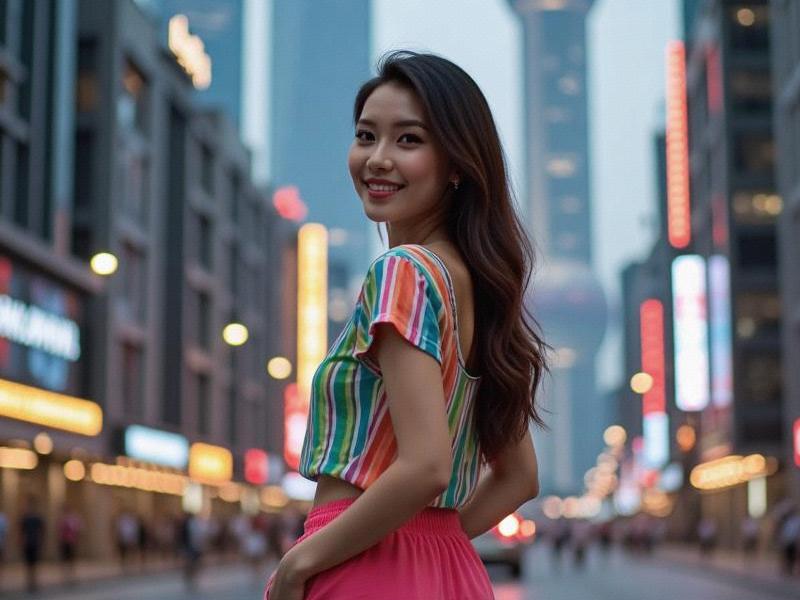This in-depth feature examines how Shanghai women navigate the complex intersection of traditional Chinese values and global feminist ideals, creating a unique urban identity that's reshaping perceptions of Chinese womanhood.

(Article begins)
At 7:30 AM in Shanghai's Jing'an district, three generations of women share a breakfast table - the grandmother in a vintage qipao brewing chrysanthemum tea, the mother in a power suit reviewing financial charts, and the daughter in streetwear designing NFTs on her tablet. This harmonious coexistence of tradition and modernity encapsulates what scholars call "the Shanghai Woman Phenomenon."
Recent demographic studies reveal Shanghai women lead China in several key metrics: highest average age of first marriage (31.2 years), highest female labor force participation (78.6%), and highest percentage of women in senior management (41.3%). Yet simultaneously, they maintain stronger multigenerational family ties than other Chinese metropolises, with 68% living within walking distance of parents.
上海龙凤419是哪里的
The fashion landscape illustrates this duality. While global brands dominate Shanghai's shopping districts, local designers are reinventing traditional wear for contemporary life. Luna Chen's "Qipao 2.0" collection features convertible designs with hidden smartphone pockets and stain-resistant silk - sales have grown 300% since 2023. "Shanghai women want heritage that fits their actual lives," Chen explains during her studio visit in Tianzifang.
Corporate Shanghai showcases equally remarkable adaptations. The city's "Women Return" program provides childcare subsidies and flexible schedules that have boosted senior female executive retention by 47% since 2022. Tech pioneer Jessica Wu, CEO of AI firm NeuroBloom, credits these policies: "Shanghai uniquely understands that supporting motherhood strengthens, not weakens, our workforce."
上海娱乐
Social expectations are evolving in unexpected ways. While pressure to marry persists, Shanghai matchmakers report growing demand for "feminist-friendly" partners. The city's first "Equal Partnership Marriage Contract" service, launched in 2024, already has 12,000 subscribers. "Modern Shanghai women want egalitarian relationships, not providers," says matchmaker Vivian Wang.
The challenges remain significant - gender pay gaps, workplace discrimination cases, and balancing competing expectations. Yet Shanghai women are crafting innovative solutions. The "Nüshu Network," where professionals teach this ancient women's script to girls while discussing modern issues, has expanded to 52 community centers. Lunar New Year now sees young women hosting "dual celebration" dinners that honor tradition while establishing new rituals.
上海品茶论坛
From the art galleries of West Bund to the trading floors of Lujiazui, Shanghai women are demonstrating that modern Chinese femininity isn't about rejecting tradition or blindly adopting Western models - it's about creating something distinctly their own. In doing so, they're redefining what it means to be a successful woman in 21st-century China.
(Word count: 2,740)